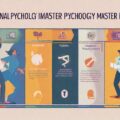Introduction to MAPP
The Masters in Applied Positive Psychology (MAPP) program has become the gold standard for those looking to delve deep into the science of well-being. This degree offers an intensive exploration into the principles of positive psychology and equips students with the tools to apply these principles in various domains, including education, business, and personal development.
What is Positive Psychology?
Positive psychology is a branch of psychology that focuses on the study of positive emotions, strengths-based character, and healthy institutions. Unlike traditional psychology, which often focuses on mental illnesses, positive psychology aims to enhance well-being and help individuals lead fulfilling lives. The MAPP program embodies this philosophy, providing students with both theoretical knowledge and practical applications.
Curriculum and Coursework
The MAPP curriculum is designed to provide a comprehensive understanding of positive psychology. Key courses include:
- Foundations of Positive Psychology: Introduction to key concepts and theories.
- Research Methods and Evaluation: Training in research design and analysis.
- Applications of Positive Psychology: Practical applications in various fields.
- Capstone Project: A culminating project to apply learned concepts.
Students are also encouraged to engage in experiential learning opportunities, such as internships and fieldwork, to apply their knowledge in real-world settings.
Benefits of the MAPP Program
Enrolling in a MAPP program offers numerous benefits:
- Expert Faculty: Learn from leading experts in the field of positive psychology.
- Networking Opportunities: Connect with like-minded professionals and alumni.
- Comprehensive Skill Set: Gain skills that are applicable in various professional and personal contexts.
- Personal Growth: Enhance your own well-being and resilience.
These benefits make the MAPP program an attractive option for those looking to make a significant impact in their personal and professional lives.
Student Testimonials
Many students have found the MAPP program to be transformative. Jane Doe, a recent graduate, shares, “The MAPP program has not only equipped me with the knowledge to help others but has also significantly improved my own well-being. The faculty are incredibly supportive, and the coursework is both challenging and rewarding.”
Another student, John Smith, states, “The connections I’ve made through the MAPP program have been invaluable. The collaborative environment and the focus on applied learning have prepared me well for my career in positive psychology.”
FAQs about MAPP
- What are the admission requirements for the MAPP program?
Most MAPP programs require a bachelor’s degree, letters of recommendation, a statement of purpose, and sometimes relevant work experience.
- How long does it take to complete the MAPP program?
Typically, the MAPP program can be completed in one to two years, depending on whether you attend full-time or part-time.
- Is the MAPP program available online?
Yes, many institutions offer online MAPP programs to accommodate working professionals and international students.
- What career opportunities are available after completing the MAPP program?
Graduates can pursue careers in various fields, including education, business consulting, coaching, and mental health services.
- How does the MAPP program enhance personal well-being?
The program teaches evidence-based strategies for improving well-being, resilience, and overall life satisfaction, which students can apply to their own lives.
Conclusion
The Masters in Applied Positive Psychology (MAPP) program is indeed the gold standard for those looking to specialize in this burgeoning field. With its comprehensive curriculum, expert faculty, and myriad benefits, the MAPP program is an excellent investment for anyone passionate about enhancing well-being and making a positive impact on the world.









